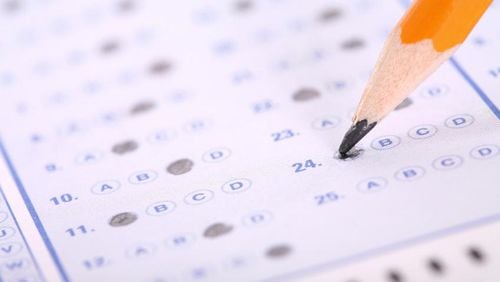Many high school students felt relief when colleges moved away from ACT and SAT admission requirements during COVID-19 and its aftermath. Now, some influential campuses are rethinking test-optional admissions and reinstating standardized test requirements.
In February, Dartmouth College announced it will ask applicants to provide standardized test scores starting next year. In looking at its own enrollment data, Dartmouth discovered test scores didn’t penalize low-income students from gaining admission but enhanced their chances. It also found test scores were a strong predictor of student success.
“SAT and ACT scores reflect inequality in society and in educational systems across the nation,” wrote Dartmouth President Sian Leah Beilock. “The research does not dispute that. Crucially, though, the research shows that standardized test scores can be an important predictor of academic success at a place like Dartmouth and beyond — more so even than just grades or recommendations, for example — and with a test-optional policy, prompted by the pandemic, we were unintentionally overlooking applicants from less-resourced backgrounds who could thrive here.”
Beilock cited the example of a student who scored a 1400 on the SAT at a high school where the mean score was 1000. That student’s exceptional performance “gives us valuable information about that applicant’s ability to excel in their environment, at Dartmouth, and beyond. In a test-optional system, Dartmouth admissions often misses the opportunity to consider this information,” she wrote.
Yale University also said it would require test scores starting with students entering in the fall of 2025. However, aspiring Yale students will have a wider range of test scores from which to choose. While Yale will accept SAT and ACT scores, applicants can instead opt to submit Advanced Placement or International Baccalaureate exam scores for admission.
In explaining the decision, Yale said in a statement: “Our applicants are not their scores, and our selection process is not an exercise in sorting students by their performance on standardized exams. Test scores provide one consistent and reliable bit of data among the countless other indicators, factors, and contextual considerations we incorporate into our thoughtful whole-person review process.”
As the AJC has reported, the Georgia Board of Regents, which oversees the University System of Georgia, is now deciding whether it, too, should reintroduce test requirements for admission in fall 2025.
Relying on standardized exams as a key factor in admissions raises legitimate fairness questions since research suggests affluent teens score higher, in part because of being able to afford test prep classes. The challenge is that many of the alternatives to test scores are also problematic.
For example, parents can hire professional coaches to polish their children’s admission essays, a process being made easier with sophisticated AI writing aids.
The de-emphasis of test scores has placed greater weight on grade-point averages and the rigor of student transcripts. But giving an edge to applicants with calculus on their transcript ignores the reality that half of U.S high schools don’t offer the course, denying many students access to advanced math.
There is likely no college admissions metric that will be proven to have no bias. The debate may come down to which admissions criteria has the least.
About the Author







